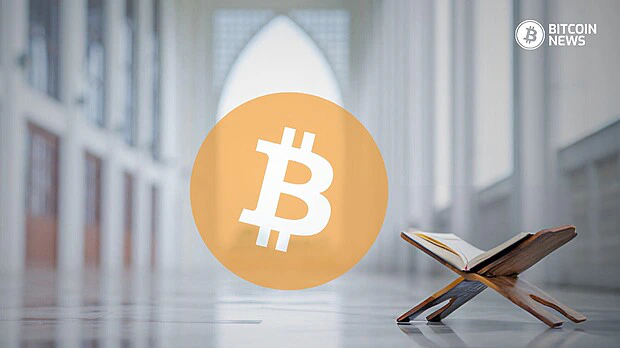As Bitcoin continues to grow in popularity and influence within the global financial system, questions have been raised about its compatibility with various religious doctrines.
Is Bitcoin haram (forbidden)? This topic is particularly significant given the large Muslim population worldwide and the growing interest in Bitcoin.
To address this question, we must explore the principles of Islamic finance, the characteristics of Bitcoin, and the varying perspectives of Islamic scholars.
Principles of Islamic Finance
Islamic finance is governed by Shariah law, which emphasizes justice, fairness, and ethical considerations in financial transactions. The primary principles of Islamic finance include the prohibition of:
- Riba (Usury): Earning interest on loans is strictly forbidden.
- Gharar (Uncertainty): Transactions should not involve excessive uncertainty or speculation.
- Maysir (Gambling): Engaging in gambling or speculative activities is prohibited.
- Haram Activities: Investments should not involve businesses that engage in activities considered haram, such as alcohol, gambling, and pork products.

With these principles in mind, let’s examine Bitcoin and determine whether it aligns with Islamic finance.
Understanding Bitcoin
Bitcoin is a decentralized digital currency that operates on a peer-to-peer network without the need for a central authority. Transactions are recorded on a public ledger called the blockchain, ensuring transparency and security. Key characteristics of Bitcoin include:
- Decentralization: Bitcoin is not controlled by any government or central bank.
- Limited Supply: There will only ever be 21 million bitcoin, creating scarcity.
- Peer-to-Peer Transactions: Users can send and receive bitcoin directly without intermediaries.
- Digital Nature: Bitcoin exists only in digital form, with no physical counterpart.
Is Bitcoin Haram In The Islamic Scholarly Perspectives?
Islamic scholars and financial experts have debated the status of Bitcoin under Shariah law. Their opinions can be broadly categorized into three perspectives: permissibility, prohibition, and conditional acceptance.
Permissibility
Some scholars argue that Bitcoin is halal (permissible) because it meets the criteria for a valid currency in Islam. They highlight the following points:
- Medium of Exchange: Bitcoin functions as a medium of exchange, similar to traditional currencies.
- Store of Value: Despite its volatility, Bitcoin can store value over time, akin to gold.
- Decentralization and Transparency: The decentralized nature and transparency of Bitcoin align with the ethical principles of Islamic finance.
Prominent scholars who support this view emphasize that Bitcoin’s technological innovation and potential for financial inclusion are positive attributes that align with Islamic principles.
Prohibition
Other scholars believe Bitcoin is haram due to its speculative nature and association with illicit activities. Their main concerns include:
- Volatility: Bitcoin’s price volatility is seen as akin to gambling, which is prohibited in Islam. One key point to understand is that Bitcoin itself does not inherently possess volatility; rather, it is the exchange rate between bitcoin and the dollar that experiences fluctuations.
- Lack of Intrinsic Value: Critics argue that bitcoin lacks intrinsic value and is not backed by a tangible asset.
- Association with Illicit Activities: Bitcoin’s use in illegal activities, such as money laundering and drug trafficking, raises ethical concerns.
Interestingly, one could argue that the latter two reasons could effectively lead to the prohibition of all fiat currencies.
These scholars argue that the risks and uncertainties associated with Bitcoin make it incompatible with the principles of Islamic finance.
Conditional Acceptance
A third group of scholars adopts a more nuanced approach, suggesting that Bitcoin can be permissible under certain conditions. They propose the following guidelines:
- Proper Regulation: Bitcoin should be subject to regulatory oversight to ensure it is not used for illegal activities.
- Investment Purpose: Muslims should use Bitcoin primarily as a medium of exchange or a store of value, rather than for speculative trading.
- Ethical Considerations: Bitcoin transactions should comply with ethical guidelines, avoiding any association with haram activities.
These scholars emphasize the need for a balanced approach, acknowledging Bitcoin’s potential benefits while mitigating its risks.
Conclusion
Whether Bitcoin is haram is complex and multifaceted, reflecting the diverse opinions within the Islamic scholarly community.
While some scholars view Bitcoin as halal due to its potential to serve as a currency and store of value, others consider it haram due to its volatility in dollar terms and speculative nature. A third group offers conditional acceptance, advocating for proper regulation and ethical considerations.
Ultimately, Muslims seeking to invest in or use Bitcoin should consider the specific circumstances and the intentions behind their involvement with Bitcoin.
As with any financial decision, it is essential to align one’s actions with the principles of justice, fairness, and ethical conduct as prescribed by Shariah law.










